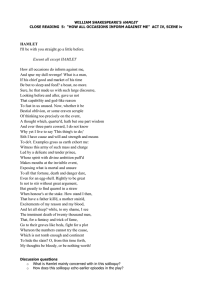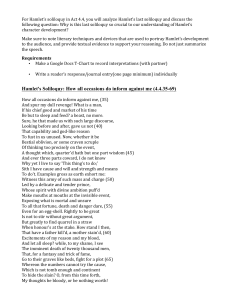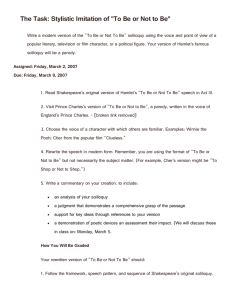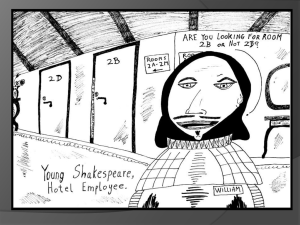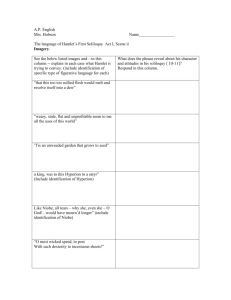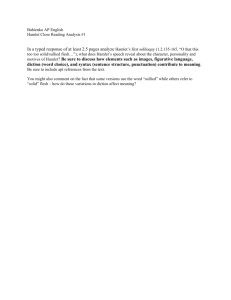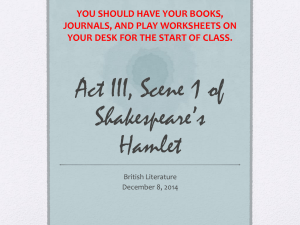Hamlet Soliloquy 4.4 Worksheet
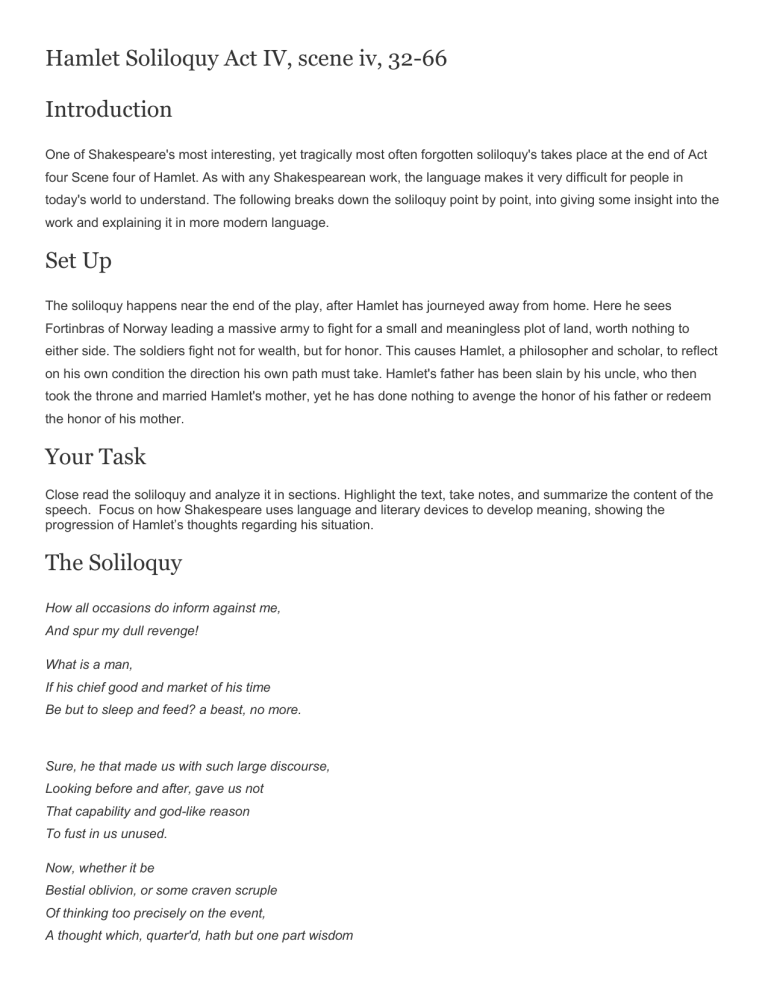
Hamlet Soliloquy Act IV, scene iv, 32-66
Introduction
One of Shakespeare's most interesting, yet tragically most often forgotten soliloquy's takes place at the end of Act four Scene four of Hamlet. As with any Shakespearean work, the language makes it very difficult for people in today's world to understand. The following breaks down the soliloquy point by point, into giving some insight into the work and explaining it in more modern language.
Set Up
The soliloquy happens near the end of the play, after Hamlet has journeyed away from home. Here he sees
Fortinbras of Norway leading a massive army to fight for a small and meaningless plot of land, worth nothing to either side. The soldiers fight not for wealth, but for honor. This causes Hamlet, a philosopher and scholar, to reflect on his own condition the direction his own path must take. Hamlet's father has been slain by his uncle, who then took the throne and married Hamlet's mother, yet he has done nothing to avenge the honor of his father or redeem the honor of his mother.
Your Task
Close read the soliloquy and analyze it in sections. Highlight the text, take notes, and summarize the content of the speech. Focus on how Shakespeare uses language and literary devices to develop meaning, showing the prog ression of Hamlet’s thoughts regarding his situation.
The Soliloquy
How all occasions do inform against me,
And spur my dull revenge!
What is a man,
If his chief good and market of his time
Be but to sleep and feed? a beast, no more.
Sure, he that made us with such large discourse,
Looking before and after, gave us not
That capability and god-like reason
To fust in us unused.
Now, whether it be
Bestial oblivion, or some craven scruple
Of thinking too precisely on the event,
A thought which, quarter'd, hath but one part wisdom
And ever three parts coward, I do not know
Why yet I live to say 'This thing's to do;'
Sith I have cause and will and strength and means
To do't.
Examples gross as earth exhort me:
Witness this army of such mass and charge
Led by a delicate and tender prince,
Whose spirit with divine ambition puff'd
Makes mouths at the invisible event,
Exposing what is mortal and unsure
To all that fortune, death and danger dare,
Even for an egg-shell.
Rightly to be great
Is not to stir without great argument,
But greatly to find quarrel in a straw
When honour's at the stake.
How stand I then,
That have a father kill'd, a mother stain'd,
Excitements of my reason and my blood,
And let all sleep, while, to my shame, I see
The imminent death of twenty thousand men,
That, for a fantasy and trick of fame,
Go to their graves like beds, fight for a plot
Whereon the numbers cannot try the cause,
Which is not tomb enough and continent
To hide the slain?
O, from this time forth,
My thoughts be bloody, or be nothing worth!
Your Summary:
What makes this particular soliloquy so interesting among the rest is that it presents a very important change for
Hamlet, a change from inaction to action, from apathy to passionate pursuit of his goal. Throughout this soliloquy we see Hamlet move through various stages of thought, from philosophical reflection, to inward reflection on the state of his own heart, to reflection on the actions of those around him and what they can teach him, back to philosophical reflection on the nature of greatness, and how he must achieve it and ultimately to from reflection to declaration of his actions from this time forth.
